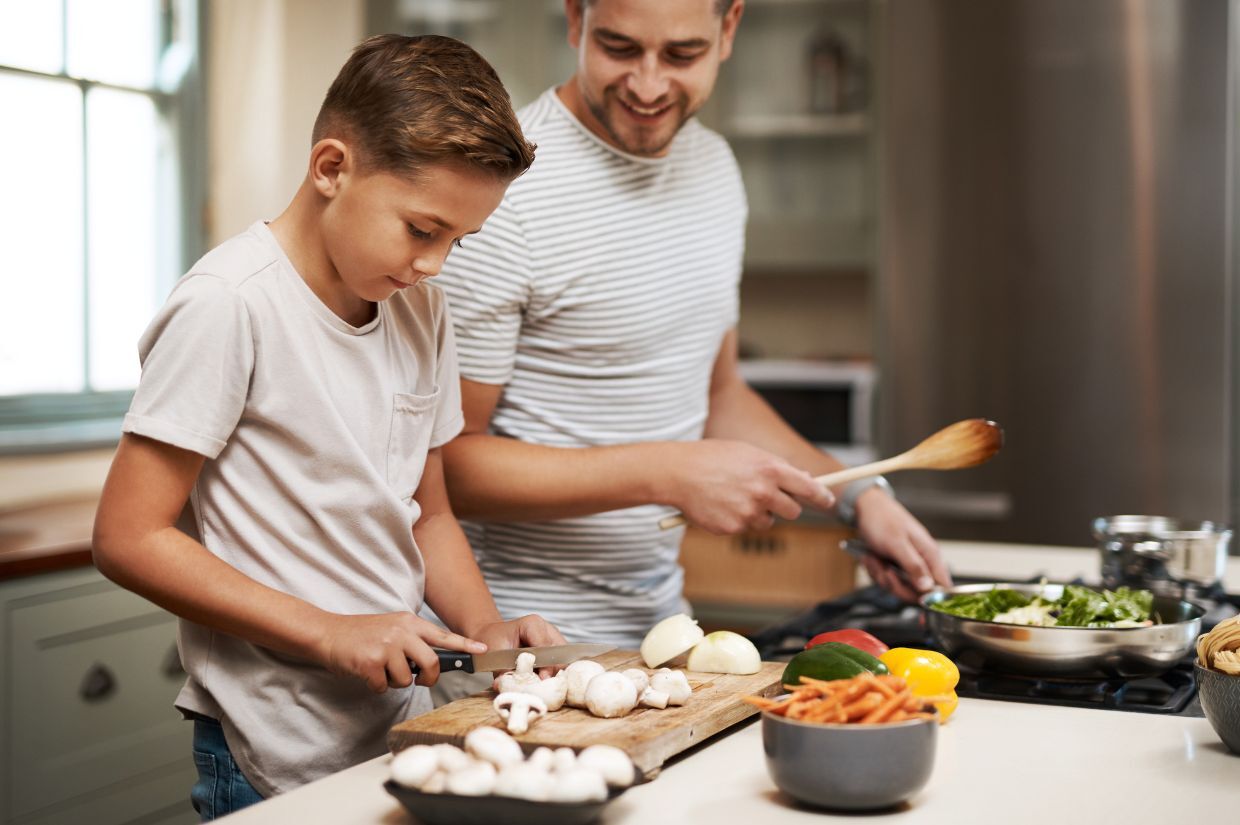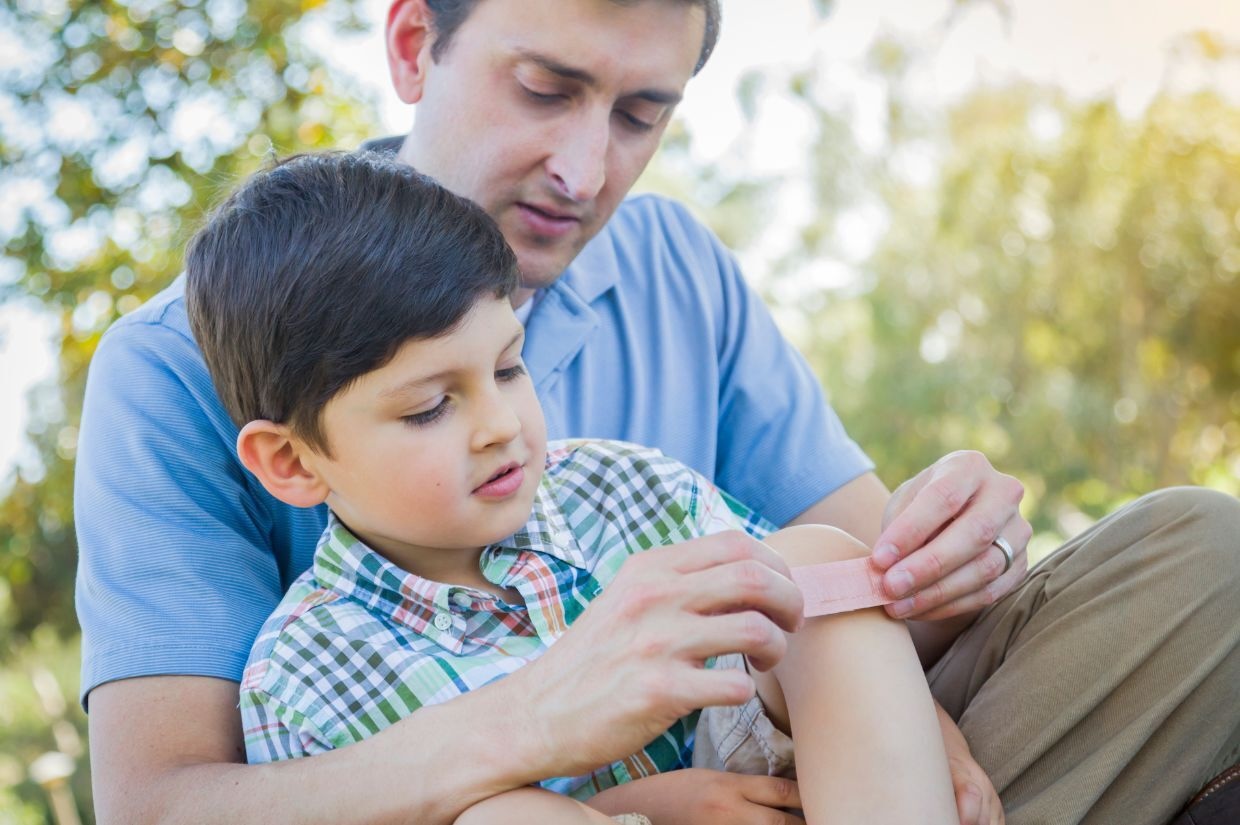Parenting is more than just providing for a child’s physical needs. It’s about equipping them with important life skills to guide them through adulthood. But what are these skills, and how can parents foster them?

Raising independent, confident and capable children goes beyond teaching them to read and write. Life skills are equally important in preparing them to navigate the world as they grow up. From problem-solving to learning how to do basic household chores, these skills will set kids up for success, no matter what challenges life throws their way. Let’s learn the 10 important life skills every child needs to know, along with relatable, everyday examples.
Personal hygiene
Personal hygiene is about teaching kids to maintain cleanliness and care for their bodies. It involves regular activities like brushing teeth, washing hands, bathing and grooming. Personal hygiene becomes even more important in maintaining good health and boosting their confidence and self-esteem as they age. Instilling these habits early ensures they’ll carry them into adulthood without needing constant reminders.
Empathy
Empathy is one of the most important social skills a child can learn. Understanding how someone else feels and responding kindly can have a lasting impact on relationships. If your child sees a classmate struggling with a math problem, encourage them to offer help instead of teasing. Similarly, teach your child to provide comfort if a sibling is upset. These acts of empathy help kids build meaningful connections and create a kinder environment wherever they go.
Problem-solving
Life constantly presents challenges, both big and small. And teaching kids how to solve problems equips them with the confidence to handle these hurdles. If your child’s favorite toy breaks, encourage them to think about how to fix it instead of immediately buying a new one. Can they glue it back together, or find other solutions? This type of critical thinking builds resilience and teaches them that there’s more than one way to approach a problem — skills that will be handy in everything from school projects to adulthood.
Basic cooking
Knowing how to prepare simple meals helps children grow into self-reliant adults. Even young kids can start with basic tasks, like making a sandwich or cutting vegetables. Not only does it teach them cooking skills, but it also encourages independence and safety in the kitchen. These small steps build confidence and instill a sense of responsibility for their own meals.
“Every child needs to learn how to cook or prepare food for themselves. It will always be helpful for them to make age-appropriate recipes, and their confidence in the kitchen will only grow.”
— Gena Lazcano, Ginger Casa

Self-defense
Self-defense is more than just learning physical techniques — it’s also about being aware of one’s surroundings and knowing how to stay safe. For instance, teaching your child not to talk to strangers or to stay close to you in crowded places or when traveling fosters awareness. As they get older, you can introduce basic self-defense techniques that give them the confidence to protect themselves if necessary. Knowing how to react in uncomfortable or dangerous situations is a vital life skill.
Household chores
Getting kids involved in household chores from an early age teaches them responsibility and the value of contributing to a team; in this case, the family. Start with age-appropriate tasks, like making the bed, picking up toys or helping to set the table. Over time, they can take on bigger responsibilities like vacuuming or folding laundry. Not only does this teach them practical skills for the future, but it also shows them the importance of teamwork and taking pride in their environment.
“Kids definitely need to know how to do laundry. My son still chuckles thinking about the guys in his college dorm who ended up with oddly colored pinkish t-shirts because they didn’t know how to properly separate their clothes before washing.”
— Sage Scott, Everyday Wanderer
Basic first aid
Accidents happen, and knowing basic first aid can make all the difference. Your child won’t always be by your side, so it’s important to empower them to calmly manage minor injuries. Ensure they have a well-stocked first-aid kit in their school backpack and teach them how to use it. Show them how to apply gentle pressure to stop bleeding, clean wounds with mild soap and water and cover injuries with a bandage. Ensure they understand the importance of asking an adult for help for more serious injuries.

Organization
Keeping things organized can reduce stress and help children stay focused, whether it’s organizing toys, school supplies or even their time. Organization skills also foster responsibility and discipline. For example, teach your child to keep their room tidy by having designated spots for toys and clothes. A child who regularly organizes their backpack before school will be less likely to forget important assignments. This habit carries over into adulthood, making life more manageable and less chaotic.
Digital literacy
In today’s tech-savvy world, understanding how to use the internet and technology responsibly is crucial. Teach your child digital literacy by guiding them on safe online behavior — like not sharing personal information and asking permission before downloading apps. Explain why screen time limits are important and how to balance using technology with other activities. As they grow older, this awareness helps them use technology in healthy, responsible ways and avoid the pitfalls of excessive online engagement.
Decision making
Life is full of choices, from what to wear in the morning to which extracurricular activities to join. Teaching kids how to make good decisions starts with small, everyday choices. Let them decide what they want for breakfast or whether they’d prefer to play outside or read a book. As they get older, these decision-making skills will help them weigh the pros and cons when faced with bigger choices, like picking classes in school or choosing a college. Learning to make thoughtful decisions builds confidence and independence.
One last thing
These important life skills are critical in shaping well-rounded, capable individuals. As parents, nurturing these abilities through everyday interactions helps children navigate the complexities of life and prepares them for the future.
Tamara Tsaturyan is the owner and writer of Thriving In Parenting. It’s a website focused on providing simple tips for busy parents — easy and healthy recipes, home decor and organization ideas and all things parenting.